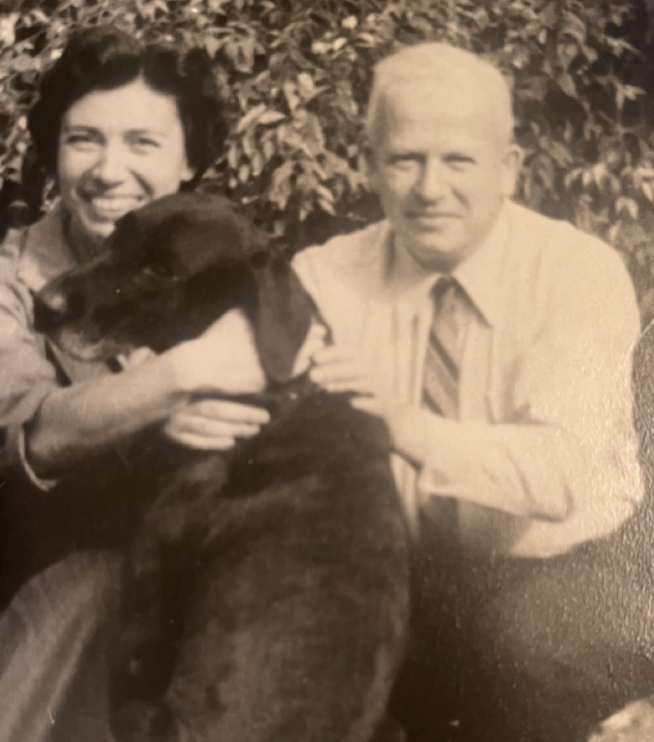On supposedly “illegal aliens”
Words matter. They shape the way we think about people born elsewhere, especially if they crossed into this country without proper papers.
For as long as I can remember, these immigrants have been referred to widely as “illegal aliens.” Today, the Trump Administration regularly uses the term even for those living, working and studying in this country legally.
In the last week, The Boston Globe wrote about a Jamaican-born seasonal police officer at Old Orchard Beach in Maine who was arrested by ICE and shipped to the Plymouth Country Correctional Facility in Massachusetts though his working papers in this country extended to 2030, The Washington Post and other outlets told of a 20-year-old, Korean-born Purdue University student, the daughter of an Episcopal priest. She was abducted from a New York City immigration courthouse where she had gone to renew her visa and shipped to a Louisiana ICE detention center. She was released five days later after nationwide outrage led by the faith-based community.
ICE officials referred to both as “illegal aliens.”
Whomever the term is applied to it conveys the message that these people are (a) criminals and (b) from another planet, or at least strange and different.
In fact, the overwhelming majority of immigrants, documented and undocumented, are neither.
Most often even those entering the country without documents are ordinary and sometimes courageous people -- husbands and wives, mothers and fathers seeking better lives in the United States, often fleeing oppressive governments, wars or gangs that make it difficult and dangerous for them to stay in their countries of origin. They and their children face threats, violence and extortion.
Any amateur student of history knows that sometimes immigrants have no choice but to flee their countries of birth. Their lives are on the line. Think of Europe in the 1930s. Look back at your own family members, wherever they came from, and ask yourself whether any of your descendants came here because they had no choice.
My father was fortunate to enter this country legally from England through Ellis Island early in 1937. His uncle already lived in this country and could sponsor him. But he certainly did not flee Germany “legally.” Though baptized a Lutheran, he was culturally 100 percent Jewish. He recognized his life in Nazi Germany would soon be in peril. (His father died of a heart attack, the day after Adolph Hitler was appointed German chancellor in early 1933.)
So one day in the summer of 1935, my dad took a hike with a non-Jewish girlfriend in the hills along along the Czechoslovakian border. At the summit, she hiked back into Germany. My dad hiked into Czechoslovakia. In his shoes were thousands of dollars, his own money but inheritance he would have been forbidden to take out of Germany.
What’s my point?
The author’s father Gunther Lanson—who escaped Germany as an “illegal alien”—with the author’s mother, Ethel, and their dog, Ranger.
When Gunther Lichtenstein, who years later would become Gunther Lanson, hiked into Czechoslovakia, he clearly was an undocumented immigrant – a so-called “illegal alien.” So were tens of thousands of others who fled the Nazi extermination camp machine to countries bordering Germany, seeking to make their way by land and sea to safety.
Would those of you who use the term “illegal aliens” to describe those who come to this country, often to flee oppression, have scorned people like my dad? I doubt it. Should today’s immigrants follow the murky letter of our immigration laws even if leaves them as prey for dictatorships, terrorists and gangsters in home countries from Afghanistan to El Salvador?
It is true that there are millions of undocumented people in this country. Some have lived here since childhood, uncertain how to change their status. Are they illegal? Aliens? Or contributing members of our society?
ICE’s own data shows that nearly three of four immigrants being abducted by our government from worksites, the street, their cars and their homes have never been convicted of any crime, not even the most minor ones. Some have lived in this country for decades. When jailed or deported by this administration, they leave behind children, many of them birthright citizens, some who’ve served in the military, are working or are enrolled in college.
When my father arrived in the United States, legally but after a journey that began with an “illegal” escape into Czechoslovakia, he still had some of the money that was in his shoes when he hiked out of Nazi Germany.
In New York City, he used this money to pay his bills while earning a dollar or two a day as an usher in a movie theater, where, watching movies over and over again, he gained greater mastery of the English language. He married an American girl, served as a master sergeant in the U.S. Army, raised two sons, opened a printing business and, later, worked as director of sales promotion for an international lighting company.
He retired from Long Island to Vermont, where he chaired his local planning board, started a chess club and opened a local travel agency with a business partner. When heavy rains flooded the Connecticut River over its banks, inundating those living in low-lying areas, my mom and dad invited long-time locals to stay on their hilly property until the water receded.
Imperfections and all, Gunther Lanson lived the quintessential American immigrant story. He certainly was no “alien.” He was part and parcel of every community in which he lived as are many who come today from Latin America, Cape Verde, Haiti, Syria, Afghanistan and elsewhere.
They live as our neighbors. They care for our elderly, our yards and gardens, our homes and more. They start businesses and, given the opportunity, often thrive.
Undocumented, no doubt, some are. But please, don’t call them illegal. Don’t call them aliens. Don’t make them different. We are lucky to have them in our communities.


